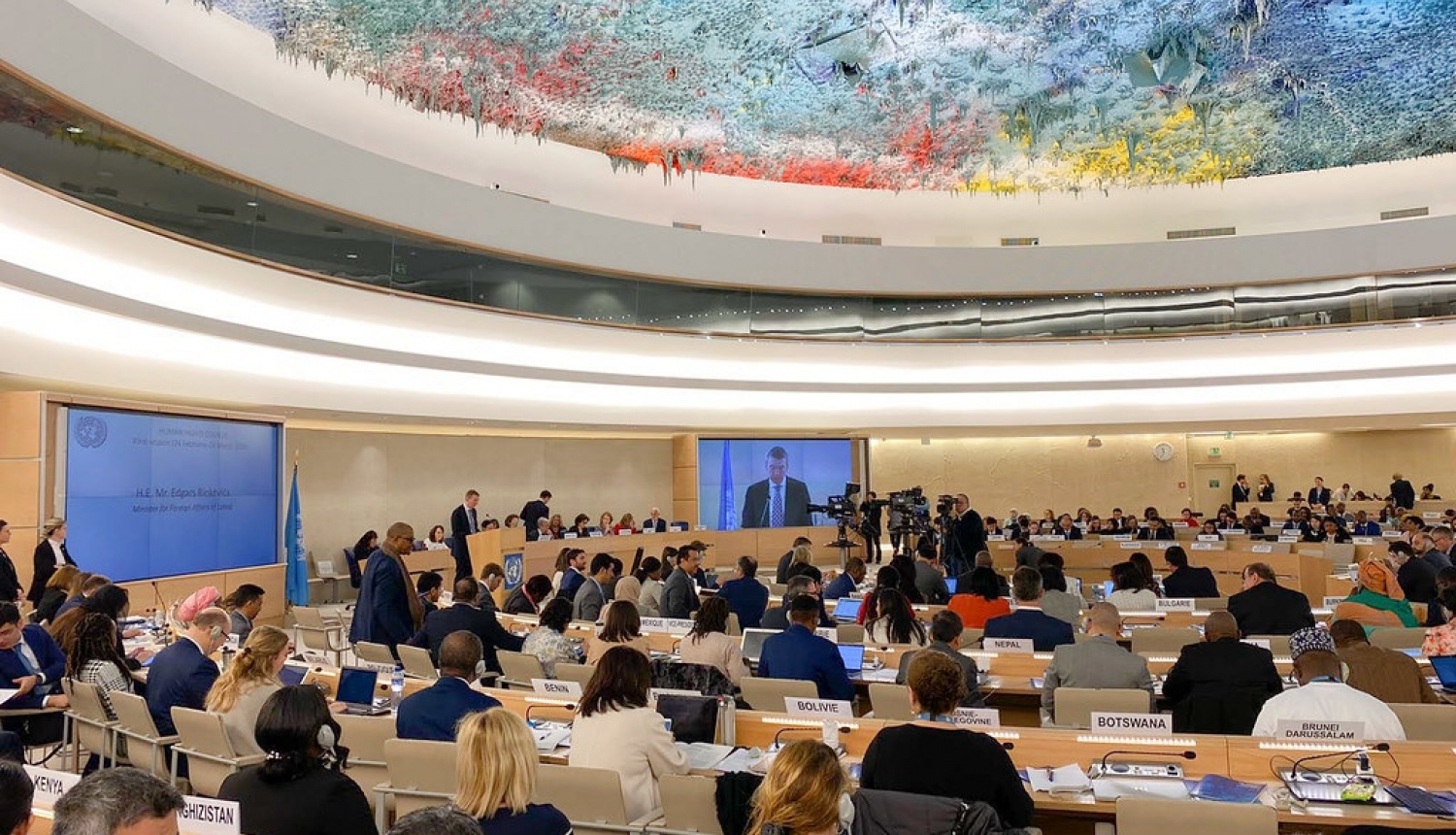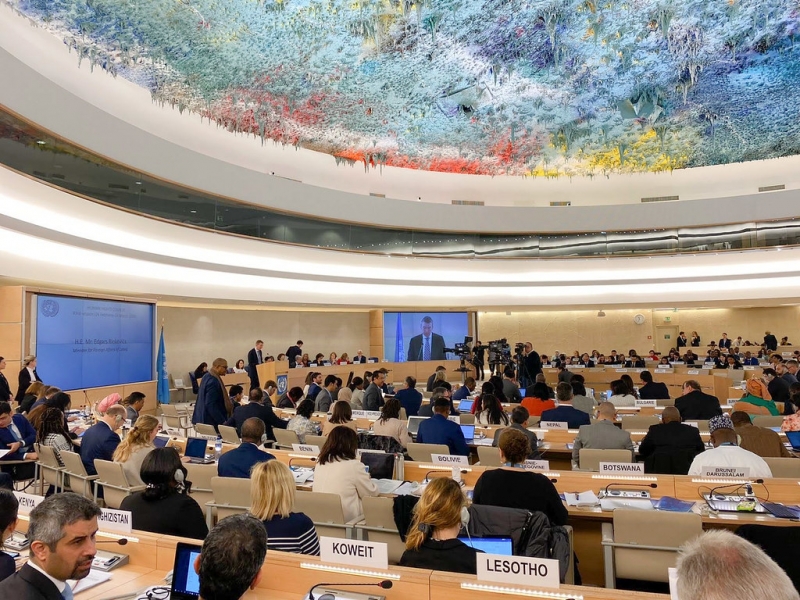On 24 February 2020, in Geneva, the Minister of Foreign Affairs of Latvia, Edgars Rinkēvičs, addressed the participants at the High Level Segment of the 43rd session of the United Nations Human Rights Council. In his speech, the Minister expressed support for the work of the UN High Commissioner for Human Rights.
“This year we mark the 75th anniversary of the United Nations. One of the greatest achievements of the UN is the creation of a comprehensive human rights system. Human rights are a core element of international law. All UN Member States must respect, protect and fulfil human rights, established in the Charter of the United Nations and the core treaties. In this regard, I would like to focus today on three themes.
Firstly, it is important to strengthen a multilateral approach in promotion of the rule of law, including protection of fundamental rights. Latvia is deeply concerned about the deteriorating human rights situation in the illegally annexed Crimea and the Georgian regions of Abkhazia and Tskhinvali/South Ossetia. We welcome the continued efforts by the Office of the High Commissioner to monitor the situation in these territories despite the refusal of full and meaningful access. This denial raises serious concerns about the real situation in these territories.
We note the negative trend in the human rights situation in the Russian Federation, in particular, the restrictions on freedom of expression, safety of human rights defenders and the ability of independent journalists and bloggers to operate in the country. Furthermore, three years have passed since the initial surge of violations against the LGBTI community in Chechnya and yet no one has been brought to justice for it. I reiterate the call to the Russian Federation to comply with all of its international human rights obligations and to ensure impartial investigation and accountability.
Secondly, I would like to address the role of individual freedoms, in particular, with regard to the freedom of expression. Latvia continues to be alarmed by the shrinking space for civil society and attempts by some countries to restrict activities of human rights defenders and limit their right to freedom of expression and opinion through intimidation, harassment and arrests. Of particular concern are reprisals against women, LGBTI and environmental human rights defenders, and those who cooperate with the UN human rights mechanisms. Besides, in the past year, we have seen a deeply worrying trend of several countries taking a backwards step and enacting new criminal provisions against same-sex relationships.
Journalists’ safety and the integrity of their work is endangered on a daily basis. Across the globe, journalists are killed, tortured, arrested, detained and bullied online for reporting on human rights violations, politics and corruption. And too often the majority of those crimes go unpunished. Impunity for attacks and violence against journalists is one of the greatest challenges. I would like to urge States to do their utmost to prevent violence, threats and attacks against journalists and to ensure accountability for crimes committed against media workers. We firmly believe that the threat of extremism must never be used as an excuse to silence dissenting views or beliefs.
Digital transformation has become part of our life. Yet, many consequences of this transformation are not fully understood and assessed. Latvia believes that this Council has an obligation to examine the potential impact of technological evolution on human rights and draw necessary conclusions in order to protect these rights in cyberspace. Latvia contributes to this, especially in area of social media and interference in democratic processes.
Thirdly, I would like to outline that 2020 is a notable year for gender equality and women’s rights. Empowerment of women lies at the heart of every policy of the Latvian government. Gender equality is among our priorities at both the national and international levels. We believe that gender equality is vital for a just, inclusive and sustainable society. All UN Member States must give political and practical support to the Human Rights Council and demonstrate that the promotion and protection of human rights underlie the UN activities worldwide,” said the Latvian Foreign Minister in his remarks.





